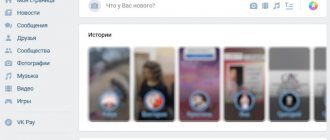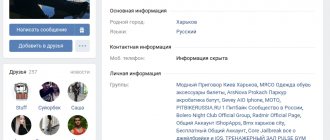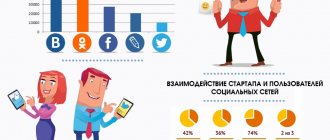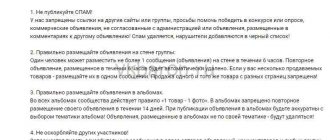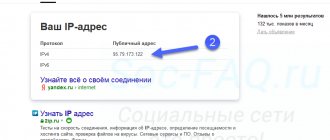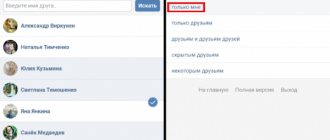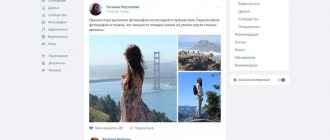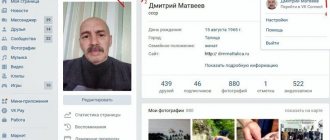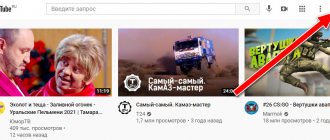| In contact with | |
| Commercial: | Yes |
| Site type: | social network |
| Registration: | free |
| Languages): | Russian, English and more than 70 other localizations |
| Server location: | Russia: Moscow, St. Petersburg |
| Owner: | Russia: Mail.Ru Group |
| Author: | Pavel Durov, Nikolai Durov |
| Beginning of work: | October 10, 2006 |
| Current status: | active |
History of the creation of the social network VKontakte // Brand Style [9:13]
VKontakte
— Russian social network. Owned by Mail.Ru Group. According to the website, alexa.com ranks 3rd in terms of traffic in Russia, 2nd in Ukraine and Belarus, 4th in Kazakhstan and 20th in the world. As of May 2021, the site has more than 350 million registered users, and more than 80,000,000 visitors access the site daily.
How did a meeting between two classmates grow into a successful IT project?
Everyone knows that the main creator of VKontakte is Pavel Durov, a bright personality and a talented programmer. Even during his student years, he actively developed, for example, he created the forum of St. Petersburg State University.
By chance, his classmate Vyacheslav Mirilashvili, with whom they lost contact 7 years ago, found out about this. While studying at an American university, Vyacheslav noticed how quickly social networks were popularizing. With this idea, he “came” to Durov, sending a fateful letter to his email. Soon they were discussing the promising idea of finding classmates and fellow students via the Internet.
By the time VKontakte was developed, Durov had almost everything - knowledge and experience in programming, an understanding of the target audience and a base of loyal student forum participants, but no money. This issue was resolved by Mirilashvili.
How to make a wiki page in a VK group
Making a wiki page in a VKontakte group is even easier than in a public page. No preliminary preparation is required here; all functionality is directly accessible to administrators and group owners.
- Log in to the group and click on the Management section under the avatar.
- Go to the Sections tab.
- In the Materials line, set the mode to Restricted.
- Return to the main page of the group and click on the Latest News tab, which is located immediately below the status. Click on the Edit button.
- Next, fill out the form in accordance with the requirements, which will be similar to those described in the previous instructions.
- Click the Save Page button.
Wiki pages make VK communities informationally attractive, interesting and popular among users. With their help, you can seriously increase your audience, which will ensure stable monetization of a group or public page.
Birthday of social media VKontakte
The website vkontakte.ru was registered on October 1, 2006, but it is believed that the launch date of the social network coincides with the birthday of its creator - October 10 of the same year, when VKontakte acquired its first functionality.
Have you already guessed where the first users of the social network came from? Of course, from the university forum, in which Durov continued to remain an administrator. At first, students registered by invitation, indicating their real name and surname. After about a month, free registration appeared, and the number of users gradually increased.
Pavel Durov – creator of VKontakte
Social networks “VKontakte” and Facebook. History of creation. Reference
The resource is visited daily by 4,000,000 people or more.
About 80% of visitors live in Russia. 41% of visitors are from Moscow, 26% from St. Petersburg.
18% of visitors are under 19 years old, 28% are from 19 to 25 years old, 11% are from 25 to 35 years old.
The site’s creators are brothers Pavel and Nikolai Durov. Pavel Durov is known in the St. Petersburg segment of the Runet as the creator of the largest student forum and other student projects. One of his projects, Durov.com, has become a repository of answers to exams in the humanities; the site is very popular during the exam period. Another popular project is the St. Petersburg State University website (spbgu.ru), which currently remains the largest university community. Nikolai Durov, Pavel's brother, is known as a specialist in mathematics and programming. At school he became the absolute champion of the All-Russian Olympiads in mathematics and computer science.
Site history
On October 1, 2006, the limited liability company VKontakte registered the domain name vkontakte.ru. This date is considered to be the founding date of the site.
Initially, VKontakte was accessible only by invitation; At the end of November 2006, at the request of existing users, registration on the site was opened.
In January 2007, according to traffic meter Alexa.com, vkontakte.ru was among the 50 fastest growing Internet sites.
On July 13, 2007, the millionth participant registered on the site.
On September 27, 2007, the site became one of the three most visited sites in Russia, ending up in third place, second only to the web pages of the search engines Mail.ru and Yandex.
On November 27, 2007, the site took second place in the popular vote for the Runet Prize, losing to the entertainment website bash.org.ru.
On January 10, 2008, according to Alexa.com, the site became the leader in Russia, but remains second in Runet, second only to Mail.ru.
In February 2008, the site interface was translated into Ukrainian, and on March 28, 2008, the site’s audience exceeded 10 million participants.
On July 24, 2008, the 15 millionth participant was registered.
Despite the fact that the service is officially called a “closed social network,” anyone who registers an account can use it to search for personal data of people of interest. It is also noted that among network users there are many so-called virtuals and clones (in other words, not all profiles correspond to a real person): fake accounts of celebrities, pets, fictional characters, profiles of real people created without their knowledge for various purposes.
From the very beginning of the site’s existence, the creators of VKontakte.ru denied the commercial component of the project, arguing that the appearance of advertising on the site could negatively affect user loyalty and the quality of the resource as a whole. Initially, the site existed with the money of its creators, gradually attracting private investment.
In June 2008, information appeared in the media about the social network's intentions to place advertising on the site. On July 15, 2008, the VKontakte.ru website entered into a contract with Media Plus, a sales house of the European Media Group and a recognized leader in radio advertising sales.
Site owners
According to the Vedomosti newspaper, the site belongs to VKontakte LLC, which was registered on January 19, 2007. According to the unified state register of legal entities, its founders were: Lev Leviev - 10%, Pavel Durov - 20%, Vyacheslav Mirilashvili - 60%, Misha Mirilashvili - 10%.
According to SPARK-Interfax, as of February 1, 2008, 100% of VKontakte belonged to the Doraview Limited offshore company, registered in the British Virgin Islands.
According to VKontakte public relations coordinator Mikhail Ravdonikas, the main investor of the site is the Digital Sky Technology fund. It is controlled by the executive director of NCH Advisors, Grigory Finger, and the former top manager of the Menatep group, Yuri Milner.
Pavel Durov in one of his comments denied the information from the Vedomosti newspaper.
Facebook history
Facebook is a popular social networking website. The site was founded on February 4, 2004. Facebook began as a communication site for students at Harvard University.
The founder of the service is Mark Zuckerberg, who installed the portal in the university dormitory. Thanks to his website, Mark Zuckerberg became the youngest paper billionaire at 23 years old. In March 2008, Forbes magazine included Zuckerberg in its list of the world's richest people.
The main difference between Facebook and existing social networks was precisely the possibility of contact: Zuckerberg offered people a simple and convenient way to exchange information about each other.
Until September 2005, the site was used only by students. In June 2006, Facebook was opened to professional communities, and in September the site opened up free registration.
In May 2007, the site opened to third-party developers and has since attracted 400 thousand programmers. Facebook now allows web designers to create software for affiliate sites, mobile phones, or in the form of web services paired with desktop applications like Microsoft Outlook.
Facebook's enormous popularity was fueled by a wave of more than 24,000 programs from independent programmers working within the site. However, the rapid growth has led to frequent violations of the privacy of network members by developers. One of the scandals was related to an option called News Feed - the ability to view all the updates of your neighbors and friends on a social network in one feed. Many users felt that such an option violated their right to privacy, despite the fact that they quite voluntarily agreed to put it on public display. The global community “Students Against Facebook” was created: in two days more than 700 thousand people joined it. As a result, the company's programmers spent three days at their workplaces to ensure maximum security for the scandalous option.
The audience of facebook.com is growing rapidly. 140 new users appear daily. In 2008, the number of visitors reached 90 million, making it the world's largest social network.
Investors are actively investing in Facebook. Facebook signed a deal with Greylock Partners and Meritech Capital for $25 million. The funds received were used for expansion: the company now employs more than 200 employees, has a large office in Silicon Valley and a powerful data center. The site also makes money from sponsorship programs. Thus, Apple was one of the first to add options for iPod owners to the site. Then JPMorgan Chase and Southwest and many others began to enter into similar agreements. The main income for the site was provided by an alliance with Microsoft: until 2011, the giant will place text and banner advertising on Facebook.
In 2006, Zuckerberg almost agreed to sell the company to Yahoo for $1 billion, but suddenly Yahoo's financial performance faltered, and Mark managed to convince Facebook's board of directors that the company could handle growth on its own.
Since the beginning of 2008, Facebook has been translated from English into 20 other languages. On June 20, 2008, the Russian version of the site went live.
All inquiries>>
Foundation of VKontakte LLC and first successes
VKontakte LLC was founded at the beginning of 2007. As expected, Vyacheslav Mirilashvili became the owner of 60% of the shares. The rest were divided between Pavel Durov - 20%, Mikhail Mirilashvili and Lev Leviev - 10% each. Pavel’s brother, Nikolai Durov, becomes the technical director.
In its first years of development, VKontakte immediately competed with the then popular social media Odnoklassniki, and in 2008 it confidently overtook it, taking the position of the most popular resource on the Runet (according to Alexa). Meanwhile, new functionality appears on VKontakte - the ability to leave anonymous opinions, draw graffiti on users’ walls, audio and video recordings, and applications.
Transition to business monetization
The project required significant investments in the development and purchase of new servers, so commercial functions appeared on VKontakte: increasing the rating using paid SMS, as well as the “Gifts” application with the purchase of pictures that can be sent to other users.
But this was not enough. Contrary to its initial position, in the summer of 2008 the company entered into a contract under which advertising banners would appear on social media. The audience size exceeds 20 million users, and at the end of 2008, the company's net profit is $4.5 million.
VKontakte plans to popularize abroad
In 2009, Lev Leviev (executive director) plans to develop abroad, so social media buys the domain name vk.com. According to management plans, the vk.com website should be launched in 12 languages in the fall of 2009.
In the same year, the social network opened an API for developers. As a result, the company receives a new format of income. For example, the developers managed to get $20 million from the game “Happy Farmer,” with half of the amount going into the pocket of the social network. At the end of 2009, VKontakte's net profit amounted to $11.6 million.
How to create a wiki page for a VKontakte public page
At first glance, creating wiki pages for a public site may seem like an overwhelming task. But it’s enough to figure it out once so that there are no difficulties later.
Reference! There is no direct ability to create wiki markup on a public page. Therefore, you will have to use a special link.
Here is a short guide on how to create a wiki page on your public page:
- Copy the link https://vk.com/pages?oid=-***&p=Page name. Paste it into the address bar of your browser.
- Change the word Title to the name of your future page. And instead of ***, indicate the ID of the public. Press Enter.
- A form for creating a wiki page will open in the window. All that remains is to fill it out correctly.
- In the top line write the name of the future page. For example, Menu, Group Rules, We offer, etc.
- Write the text in the bottom field and format it according to your wishes. Here you can create bulleted lists, highlight headings, use bold text and italics.
- The page can also be supplemented with photographs, video and audio files, links to external sites and internal VKontakte pages.
- In the lower left part of the screen there is a Page Access hyperlink, which limits the circle of users who will be able to view new materials (all users, only subscribers, only editors and administrators).
We recommend: Beautiful menu for the VKontakte group
- To view the intermediate result, click the Preview button. When the work is finished, click the Save Page button.
At this point, the process of creating a wiki page in the VK public can be considered complete.
VKontakte audience 70 million users
VKontakte receives the status of the largest social network on the Russian Internet. According to TNS statistics, in the summer of 2010, the monthly number of users of the social network was 19.6 million. By the fall of the same year, the number of registered users already exceeded 70 million.
The social network provides free access to the mobile portal 0.vkontakte.ru, the purpose of which is to quickly load web pages via the mobile Internet. In essence, it was a lightweight website format for mobile phones - m.vkontakte.ru.
By this time, 32.55% of VKontakte belonged to Mail.Ru Group, which provided a report for 2010. It again showed significant growth: VKontakte’s revenue amounted to $93.8 million, and EBIDTA was $28.4 million.
Who owns VKontakte now?
To the question of who owns VKontakte, the answer is quite simple - at the moment the only owner is Mail.ru Group. But let's figure out how this happened. To do this, it is worth turning to the history of the formation of the most popular social network on the RuNet.
The first main owners and founders of Vkontakte LLC were father and son Mirilashvili. Thanks to their financial support, the project was invested at 70% of the total amount. Two more investors were Pavel Durov (20%) and Leviev Lev (10%).
At the time of the creation of the network, determining on VKontakte who the owner and the first person of the company was, from a legal point of view, had absolutely no meaning, although the first registered document in the system was Pavel Durov’s profile.
An interesting point when creating the VK social network is the fact that the main investor of the project, and practically its owner, was a Georgian businessman with a dark criminal past. Mr. Mirilashvili had troubles with the law at one time, but as you can see, this did not at all affect his financial well-being.
Confrontation between Mail.Ru Group and Durov
In the summer of 2011, Mail.Ru Group increases its share in social media by another 7.44%, reaching 39.99%. It is clear that the holding needed complete control over the social network - VKontakte was a competitor, “taking away” the audience from Odnoklassniki and Moi Mir, owned by Mail.Ru Group. The company's leaders themselves stated this.
The eccentric Pavel Durov did not stand aside, commenting on these statements on his Instagram account - in the photo he depicted a “figure with a middle finger” and explained that Mail.Ru Group may not count on the takeover of VKontakte. But he was still wrong about this.
Idea
It is believed that the idea of the VKontakte social network belongs to the main developer of the project, Pavel Durov.
He, according to the partners, also suggested the original name. The goal of the project was to provide a service, namely: the creation of a portal that will allow students to stay in contact. In 2004-2006, Durov was involved in the development and administration of student web projects. One of the most popular was the project of the website durov.com. The site offered answers to exam questions in humanitarian universities. It was on this site that the first links to the new VKontakte project were posted. Obviously, the good traffic on durov.com became a springboard for the VKontakte network.
Scandals around VKontakte and unprofitable years
In 2011, the FSB asked to close political opposition groups registered on VKontakte. But Durov’s team ignores pressure from the intelligence services, explaining that the social network is an apolitical project that does not express support for any of the parties.
Then the work of the project was significantly affected by anti-piracy laws - the administration had to carry out the so-called cleansing of content on social media. Further, the United States accuses the domestic social network of providing access to intellectual property without obtaining permission from the copyright holder. In general, there were quite a lot of similar cases.
The Mail.Ru Group holding reports that from 2008 to 2011. VKontakte was a profitable project, but in 2012 the project suffered a net loss of 210 million rubles, and in 2013 – 137 million rubles.
[edit] History
Pavel Durov on his 26th birthday, October 10, 2010
The site was created in 2006 by Pavel Durov and his brother Nikolai Durov, who soon joined, who became technical director. In fact, it is the Russian analogue of the Facebook site. Initially, only students and graduates of Russian universities could register on it, but soon registration restrictions were lifted.
Since 2007, the popularity of the site began to grow rapidly. By November 2007, the number of site users reached more than 3 million. At the same time, it was stated that VKontakte was ahead of another Russian social network, Odnoklassniki, in terms of traffic.
In April 2008, it was announced that the social network was used by more than 10 million users. At the same time, work began on the internationalization of the resource; versions of the site were launched in many foreign languages, including Ukrainian.
On September 5, 2009, the vk.com domain was purchased in order to promote the site on the international market.
In February 2010, the number of VKontakte users reached 60 million. In the same year, a payment system was launched, which was closed a year later.
How did Mail.Ru Group buy out 100% of VKontakte shares in 2014?
In April 2014, information appeared that 48% of VKontakte shares were purchased by the United Capital Partners fund - these were the shares of Vyacheslav and Mikhail Mirilashvili, as well as executive director Lev Leviev.
How and why? The motives of the co-founders, as well as the amount of the transaction, were not subject to disclosure. Thus, United Capital Partners becomes the largest shareholder of the social network. At the same time, 40% remains with Mail.Ru Group, and 12% with Durov. Meanwhile, VKontakte is setting new records.
On January 20, 2014, the number of social network users per day reached a record 60.2 million people. (LiveInternet statistics). Net profit in 2014 amounted to 709 million rubles, which is 15 times higher than the previous year.
Photo from Durov’s personal VKontakte page (January 21, 2014)
In January, Durov sells his share of VKontakte to Ivan Tavrin, who served as CEO at Megafon. And here you can track interesting facts.
As it turned out, the main owner of Megafon was Alisher Usmanov, who was also the controlling shareholder of Mail.ru Group. That is, Tavrin and Usmanov were actually partners. As a result, Usmanov, albeit indirectly, gained control over the VKontakte project, since the total share of Mail.ru Group and Tavrin amounted to 52% of the shares. By the way, the latter sold his 12% stake in Mail.ru Group in March.
In September, the holding announced that it was buying out the remaining 48% and receiving a 100% share of VKontakte. This is how Pavel Durov loses his “fight” to Mail.ru Group, to whom we can give credit. To completely absorb a seemingly unattainable project in about six months is not an easy task.
How does VKontakte live under the leadership of Mail.ru Group?
Now the company is more loyal to cooperation with intelligence agencies. Thus, in the summer of 2021, a social media spokesman confirmed the information that VKontakte transferred data about its users to law enforcement agencies. Do you think through the court? Surprisingly, this happened simply at the request of the intelligence service. This statement was made by Evgeny Krasnikov at a forum in Kazan.
In 2021, agreements were signed between the social network and major copyright holders of music products, including such as Universal Music, Believe Digital, Sony Music. But this did not change the US attitude towards the Russian social network.
In 2021, VKontakte is once again listed on the updated list of the US Department of Commerce, which consists of the 25 largest pirate sites. I don’t think it’s even worth talking about Ukrainian sanctions in 2021 - everyone knows that.
Official results of Mail.Ru Group for 2021: VKontakte’s revenue increased significantly and amounted to 18 billion rubles. Monthly audience of 97 million users.
As before, the social network is constantly acquiring new features: secure video and voice calls in applications for mobile devices, algorithms (protection of unique content), live covers, archiving of recordings and others.
The social network strives to penetrate more into the lives of its users. For example, the VK Hackathon project organizes large-scale competitions for developers with prize funds. VK Cup holds annual championships among programmers, VK Fest organizes open-air festivals.
Official announcement of the 5th VK Hackathon (2019)
The history of the creation of “VKontakte” - the launch of the network
Together with his brother Pavel Durov in 2005, he began to develop the idea of the VKontakte social network. The idea of a correspondence site that would work all over the world appeared after a friend from abroad came to visit Pasha. The programmer realized how difficult it was for him to keep in touch with friends who live far away. You need to understand that previously people almost never corresponded or communicated on the Internet, and if this happened, it was only by email.
Inspired by the history of the social network Facebook, Durov decided to develop a similar site. Its main feature was that instead of a simple email address, information about users is stored there.
In 2006, Pasha Durov began developing VKontakte and within a few months the first visitor registered there. Initially, only a user who received an invitation from others could create an account online, because the site was closed. But after VKontakte began to grow, the founders decided to make it open and confirm the registration of everyone.
Initially, “VKontakte” was called “Students.ru”, but almost immediately the social network was renamed.
The developers said that the site will be completely free and will not contain advertising.
